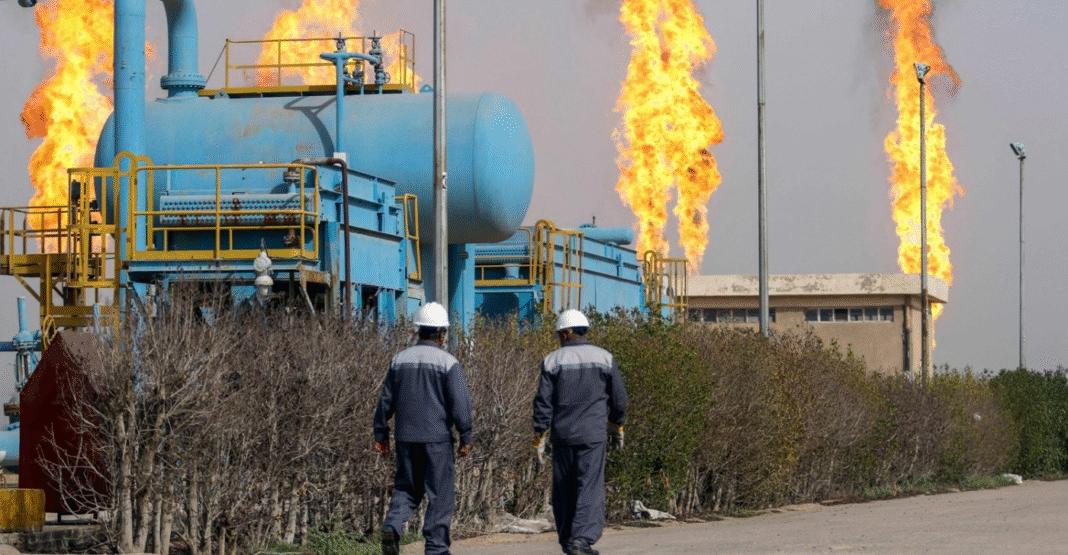Iraq’s Basrah crudes decline for the second straight week as global oil prices continue to weaken. The market shows strong reactions to easing geopolitical risks and shifting investor sentiment. Iraq monitors the situation closely as the energy market remains highly sensitive to regional and international developments.
Basrah Heavy dropped by $1.32, settling at $63.08 per barrel. Meanwhile, Basrah Medium reached $64.76 after a similar decline. These drops reflect a consistent downward trend in Iraq’s oil exports and signal pressure on state revenues. The government tracks these movements to manage its fiscal outlook and future oil strategies.
The Basrah crudes decline links directly to changes in global demand and reduced risk premiums. Investors turned cautious after geopolitical tensions eased between Israel and Hamas, lowering overall energy market uncertainty. Consequently, global benchmarks fell by more than 3%, and traders adjusted positions to reflect the calmer environment.
Moreover, analysts believe that higher production levels from key suppliers add pressure on Iraq’s oil prices. Increased output from the United States and other producers expands supply and limits recovery for Iraq’s crude values. The Basrah crudes decline highlights the challenge Iraq faces in maintaining revenue stability amid shifting global trends.
In response, Iraqi officials aim to strengthen export management and improve pricing mechanisms. They continue to explore new partnerships to ensure competitiveness and protect the national economy. The Ministry of Oil focuses on balancing output with market conditions while supporting long-term investment in infrastructure and energy diversification.
Furthermore, experts suggest Iraq could expand refinery capacity to reduce dependency on volatile export prices. Domestic development projects may help stabilize income and create new opportunities across the energy sector. The Basrah crudes decline serves as a reminder that diversification and innovation are crucial for Iraq’s economic resilience.
As Iraq navigates the changing energy market, it seeks greater collaboration with regional and global partners. The country aims to enhance production efficiency, maintain market presence, and sustain growth despite price volatility.
Iraq’s current energy strategy shows determination to adapt quickly to market challenges. The Basrah crudes decline underscores the urgency for reform and stronger planning to secure the nation’s economic future.


